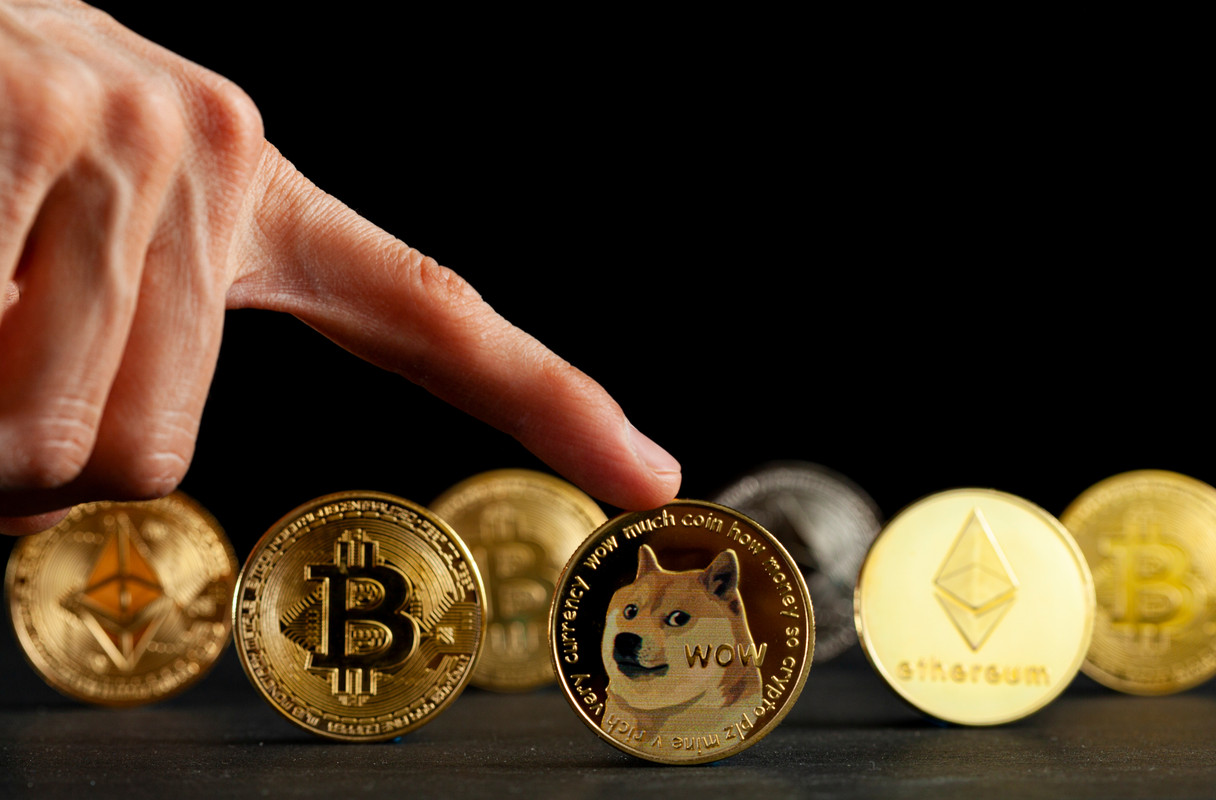What Are Cryptocurrencies And How Do They Work?
by siteadmin

If you are interested in cryptocurrencies, you may have heard about Bitcoin, Ethereum, or Ether. These are all very interesting technologies that are worth looking into. These digital currencies are mainly managed and stored on digital computer systems and are primarily exchanged over the internet. There are many different types of digital currency, such as virtual currency and central bank digital currency. The most popular ones are Bitcoin and Ether. Read on to learn about them. This article will provide you with some basic information about these technologies and how they work.
Cryptocurrencies
While most people still think of cryptocurrencies as investments, the reality is that they are increasingly becoming accepted as currency. Major retailers like Whole Foods, Nordstrom, Etsy, Expedia, and PayPal are accepting crypto payments. These services allow consumers to trade tokens for goods and services. These companies use blockchain technology to store and process transactions. This means that people can purchase and sell NFTs with their cryptocurrency. Moreover, these companies offer a broader range of services than just crypto trading.
Most cryptocurrency users store their coins in a cryptocurrency wallet, which is a computer application that allows them to receive and spend cryptocurrency. They then use a unique "key" to write their transactions in the public ledger. This key is tied to the transaction but does not identify a person or company. This anonymity is one of the main appeals of cryptocurrencies. As long as you have a valid wallet, you can make purchases or sell goods online.
Ethereum
The Ethereum digital currency is a means of payment for computing resources. Developers use this digital currency to build applications and smart contracts. It can also be used to make real-world purchases if a merchant accepts it. However, it is not yet widely accepted. However, there are some promising applications for cryptocurrency. If you're interested in investing in it, consider using it as a virtual currency. Here's how you can get started.
Ethereum is a form of digital currency that involves blockchain technology. The system is developed to be open and decentralized. Users can exchange one form of Ethereum for another in the same network. The Ethereum network is based on several apps that make it easy for users to trade with one another. This allows users to create several places to purchase different goods and services. The network's protocol can prevent fraud and can gather multiple reports on the validity of transactions.
Bitcoin
This digital currency is a virtual form of money that you can transfer between people via the internet. It can be used in any country and can be shared using any computer. One country wants the world's top economies to discuss the regulation of bitcoin at the upcoming G20 summit. Countries that have banned or limited the use of cryptocurrencies. However, the price of bitcoin has continued to rise despite these challenges.
A blockchain is a public ledger that records all transactions. The blockchain keeps track of who owns what coins, and all transactions are added to the end of the chain and verified by computers in the currency's network. A blockchain is designed to prevent double-spending because of the way it works. Digital coins are files that can be copied multiple times and sent to multiple people. However, this doesn't mean that everyone can access bitcoin. Businesses that accept it are charged minimal transaction fees.
Ether
The native token of the Ethereum network, Ether is the second most valuable cryptocurrency in the market after bitcoin. It was launched in the year 2015, and its founder Vitalik Buterin introduced the idea in a white paper. It operates on blockchain technology, which is a public ledger, making it very difficult to cheat the system. Because of this, transactions made with Ether are anonymous, and there's no need to divulge any personal information when making a transaction.
Despite its popularity, however, there are certain risks with investing in cryptocurrency. Prices have fluctuated wildly since Ethereum's launch, going from $4,800 per coin in 2015 to just over $2,500 in 2022. Furthermore, the future of this technology is largely uncharted, due to the lack of regulation. The price of Ether will likely continue to fluctuate, but that's normal in a crowded market.
Litecoin
Litecoin is a peer-to-peer digital currency that functions similarly to Bitcoin. It uses a distributed network of nodes to verify transactions, which are then recorded on the Litecoin blockchain. Unlike Bitcoin, though, Litecoin doesn't have a central authority to control its transactions. It uses a different mining algorithm, called Scrypt, and is therefore much less vulnerable to double-spending attacks. Its limited supply means that there will be only 84 million coins in total circulation.
Litecoin is priced against the dollar, so if you want to purchase a certain amount, you will have to sell a certain amount of USD. This is a good strategy for beginners, though investors should be aware that there are risks involved when it comes to digital currencies. It's important to remember that you should always conduct due diligence before investing in any digital currency. Although there's a lot of hype and promise surrounding bitcoin, it's always best to do your research and make sure that you're getting your money's worth.
Ripple
The Ripple digital currency (XRP) is an international currency used for international transactions. In many ways, it functions much like a bank, except that it isn't based on fiat. The Ripple ecosystem allows users to exchange US dollars for euros or vice versa and can send money faster than traditional methods. Ripple also charges a low fee compared to traditional methods. It also allows users to send money from one wallet to another with the touch of a button.
Ripple's digital currency, XRP, is one of the fastest growing cryptocurrencies and has recently risen to double digits. The company is planning to release 55 billion XRP over the next 55 months. While the underlying technology is sound, the company is currently in a series of legal hearings with the SEC over whether or not the digital currency that it uses is secure. Because of this, the future of XRP is uncertain.
Litecoin Cash
The Litecoin Cash digital currency fork is a cryptocurrency forked from the popular Litecoin coin. Like its predecessor, it's generated through mining. But instead of using traditional SHA256 mining, this cryptocurrency uses a new type of cryptography called "hive mining." This process requires no special hardware and does not affect existing SHA256 miners. The new technology makes it difficult for attackers to mine 51% of the network, so they will never mint blocks on the attacked private chain.
Litecoin Cash was launched on Feb. 20, 2018, at around $5 per coin. Its popularity has skyrocketed since then, with its value now trading at around $1,500. But there are still many issues to overcome in the cryptocurrency space, such as a lack of robust governance systems and tracking issues. One of these issues is the fact that the mining hardware for bitcoin is outdated and the cryptocurrency community continues to release improved models every day.
Ripple XRP
Ripple XRP is a digital currency that has been gaining ground in the financial industry. While the growth potential is tremendous, the XRP digital currency is facing several challenges. The company has faced legal action from the Securities and Exchange Commission, and the company has been accused of misleading advertising. The company claimed that it was paying exchanges to list XRP early on. But this is not true, and the SEC is investigating the company. The SEC actions result in massive declines in the token's value.
The XRP digital currency functions as a bridge between fiat currencies and other cryptocurrencies. As a result, XRP is not discriminatory between these currencies. It uses a consensus protocol to verify transactions. A majority of validators must accept a transaction for it to be approved. This process is efficient, and it takes only a few seconds. Furthermore, XRP is not regulated by any central authority, which makes it suitable for financial institutions and businesses.
Ripple XLM
If you're looking for a new digital currency, Ripple XLM is an excellent choice. It offers many of the same benefits as other cryptocurrencies and is growing in popularity day by day. But like all cryptocurrencies, Ripple is still in its early stages. Its price has shown some promise, but it has also experienced wild price swings. In November/December 2017, the price spiked to over $0.73 and then fell back down to just over a cent by January 2022.
Although Ripple is a private company, the XRP ledger is a public, decentralized network. Anyone can access the XRP Ledger and use it for a variety of purposes. In addition to allowing consumers to buy and sell XRP on the open market, Ripple is also a popular digital currency with financial institutions. Its XLM price is currently rated at around $0.20 per unit.
CATEGORY: Cryptocurrency
TAGS: blockchain, Digital Currency, Bitcoin, Crypto, Investment Strategy, Trading
If you are interested in cryptocurrencies, you may have heard about Bitcoin, Ethereum, or Ether. These are all very interesting technologies that are worth looking into. These digital currencies are mainly managed and stored on digital computer systems and are primarily exchanged over the internet. There are many different types of digital currency, such as…
Recent Posts
- Helena Flooring Pro’s: Your Premier Choice for Quality Flooring Solutions in Helena, MT
- Blazing Tiger Products & Services Revolutionizes Health and Wellness Industry with Probiotics and Grass-Fed Beef Offerings
- Reviving Your Devices: Schmitt Happens CPR Takes iPhone Repair to New Heights
- Reviving Your Devices: Schmitt Happens CPR Takes iPhone Repair to New Heights
- Butte Roofing Company: Setting the Standard for Excellence in Roofing Services in Butte, MT
